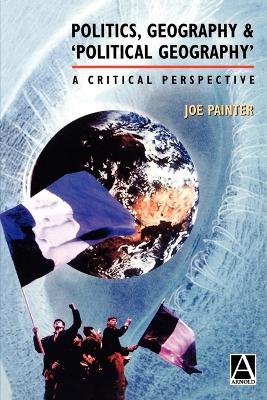This text provides a survey of the whole range of approaches adopted by political geographers and others in studying the relationship between political processes and space, place and territory. The author adopts three principal objectives in making this study: to chart the development of political geography since the end of the nineteenth century; to provide an exegesis of current research and scholarship in the field, stressing both the main areas of empirical enquiry and the characteristic theoretical and methodological approaches adopted; and to discuss the ways in which an understanding of the relationship between geography and politics is central to the study of the relationship between society and space. Drawing on examples from a number of different countries and social systems, the book aims to provide a broad overview of political geography. It examines a range of political processes, institutions and conflicts, and shows how space and time are crucially involved in their development.
Topics covered include the formation of modern states and their contemporary restructuring, imperialism and post-colonialism, international relations and the aftermath of the Cold War, and social movements. The author develops and applies a new interpretative perspective in thinking about the relationship between politics and geography. He argues that politics is centrally concerned with issues of discourse, meaning, representation, strategy, authority and identity, and draws on examples of contemporary processes of political change to place these ideas in context.
- ISBN10 034056735X
- ISBN13 9780340567357
- Publish Date 17 September 1995
- Publish Status Out of Print
- Out of Print 4 May 2000
- Publish Country GB
- Imprint Hodder Arnold
- Format Paperback
- Pages 224
- Language English
